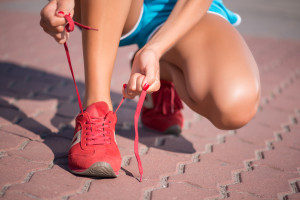- Calls to this hotline are currently being directed to Within Health, Fay or Eating Disorder Solutions
- Representatives are standing by 24/7 to help answer your questions
- All calls are confidential and HIPAA compliant
- There is no obligation or cost to call
- Eating Disorder Hope does not receive any commissions or fees dependent upon which provider you select
- Additional treatment providers are located on our directory or samhsa.gov
Finding Hobbies You Enjoy as a Healthy Coping Mechanism in College

Contributor: Courtney Howard, B.A., Executive Assistant at Eating Disorder Hope and Addiction Hope
College is a time to explore your interests, meet new people, and take on new hobbies. Finding the right hobbies that boost your mental health can make a huge difference in your college experience. These activities can also be effective coping mechanisms to aid your eating disorder recovery.
There are many potential triggers in college, so it is important to be aware of the chance of relapse and arm yourself with these coping tools. Effective coping mechanisms can include joining social organizations, participating in activities through your chosen major, or traditionally solitary hobbies.
Social Opportunities in College
Many activities in college provide students with an opportunity to socialize and meet new people.
Intramural sports run th rough your college or university can be a great chance to get out of your dorm room, stay active, and connect with other people who have similar interests. These leagues range from more social communities to highly competitive endeavors, so make sure to do your research and find the league that best suits your interests. Volleyball, flag football, and ultimate frisbee are examples of common intramural sports available on most college campuses.
rough your college or university can be a great chance to get out of your dorm room, stay active, and connect with other people who have similar interests. These leagues range from more social communities to highly competitive endeavors, so make sure to do your research and find the league that best suits your interests. Volleyball, flag football, and ultimate frisbee are examples of common intramural sports available on most college campuses.
There are also many clubs and on-campus organizations available to students, from advocacy groups and volunteer organizations to sororities and fraternities. Joining a volunteer organization can be good for the soul in many ways, as you can give back to the community and find your sense of purpose.
It might take a few tries to find the right activity or community for you. Try to be patient and enjoy meeting different types of people while learning more about yourself in the process.
Activities Through Your Chosen Major
Hopefully your major is something that you are passionate about, something that feeds your soul. If this is the case, it can be easy to find coping mechanisms related to your chosen field.
Once you decide on a major, there will likely be related clubs and activities you can participate in. For example, if you are a theatre major, you can get involved in student-run productions, join the improv team, or start attending club meetings. Individuals within each major typically welcome each other with open arms.
Your major might even have an open part-time job for which you can apply. Examples include working at the on-campus art supply store or as a counselor’s assistant. Though it is generally not a good idea for your job to be your primary coping mechanism, it can be beneficial to put your energy toward this if it is your passion.
Engaging in these activities can be a positive experience that improves your mental wellness. If you are in the depths of your eating disorder, you likely do not feel interested in socializing or getting involved in your on-campus community. However, keep in mind that finding alternative coping mechanisms to your eating disorder behaviors is an essential step toward recovery.
Solitary Hobbies that Boost Mental Health
 If you are more of a homebody, the aforementioned activities might not sound too appealing. There are plenty of solitary hobbies that can be implemented as coping mechanisms in your recovery while in college. Just check in with yourself and make sure you are not isolating because of your disorder.
If you are more of a homebody, the aforementioned activities might not sound too appealing. There are plenty of solitary hobbies that can be implemented as coping mechanisms in your recovery while in college. Just check in with yourself and make sure you are not isolating because of your disorder.
Arts and crafts can be a great way to express yourself, particularly when you are going through a hard time. This can include painting, knitting, scrapbooking, or any other arts and crafts activity that interests you. Using these healthy coping mechanisms not only has the power to reduce your anxiety, but can also give you a sense of catharsis in being able to express your emotions through creating art.
When using art as a coping mechanism, the end result does not need to be a masterpiece. All that matters is getting your feelings out in a healthy way.
The same is true of writing. Whether this takes the form of journaling, composing poetry, or even beginning a novel, writing can be cathartic and an excellent coping skill in your recovery journey.
The Importance of Coping Skills
It is vital that those in eating disorder recovery develop healthy coping skills. If these skills are in place, the individual is less likely to engage in disordered food behaviors when difficult feelings arise.
With this in mind, try finding hobbies that serve as coping mechanisms even if you are doing well in your recovery. Then, if you are triggered in the future, you will be able to fall back on these skills and reduce your likelihood of relapse.
Community Discussion – Share your thoughts here!
What coping tools did you develop in college that benefitted your recovery?
 About the Author: Courtney Howard is the Executive Assistant for Eating Disorder Hope and Addiction Hope. She graduated summa cum laude with a B.A. from San Diego State University, holds a paralegal certificate in Family Law, and is a Certified Domestic Violence Advocate. After obtaining her certification as a life coach, Courtney launched Lionheart Eating Disorder Recovery Coaching in 2015 and continues to be a passionate advocate for awareness and recovery.
About the Author: Courtney Howard is the Executive Assistant for Eating Disorder Hope and Addiction Hope. She graduated summa cum laude with a B.A. from San Diego State University, holds a paralegal certificate in Family Law, and is a Certified Domestic Violence Advocate. After obtaining her certification as a life coach, Courtney launched Lionheart Eating Disorder Recovery Coaching in 2015 and continues to be a passionate advocate for awareness and recovery.
The opinions and views of our guest contributors are shared to provide a broad perspective of eating disorders. These are not necessarily the views of Eating Disorder Hope, but an effort to offer discussion of various issues by different concerned individuals.
We at Eating Disorder Hope understand that eating disorders result from a combination of environmental and genetic factors. If you or a loved one are suffering from an eating disorder, please know that there is hope for you, and seek immediate professional help.
Last Updated & Reviewed By: Jacquelyn Ekern, MS, LPC on August 9, 2016
Published on EatingDisorderHope.com

The EatingDisorderHope.com editorial team comprises experienced writers, editors, and medical reviewers specializing in eating disorders, treatment, and mental and behavioral health.

